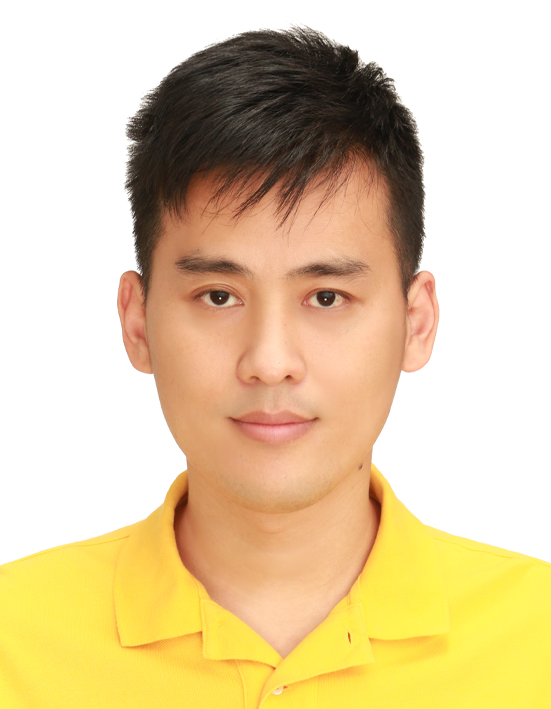
| 中文名 | 洪澄瑜 | 领域 | 信息科学与系统科学 |
| 性别 | 男 | 所在单位 | 华中师范大学 |
| 所在部门 | 人工智能教育学部 | 专业职称 | 副教授 |
| 学历学位 | 博士研究生 | 是否博导 |
人智交互技术在科学教育上的应用 (Human-Computer Interaction)、AR(扩增实境)/VR(虚拟实境)在语言学习上的应用、机器学习 (模糊理论 Fuzzy Set Theory)、教育心理与教育科技(Educational Psychology and Technology)、虚拟科学实验(Interactive Digital Simulations)、眼动追踪(Eye-Tracking)与生理讯号分析(EEG)、悦趣化学习(Digital Game-based Learning)
教育背景:
2006年至2008年,中国台湾朝阳科技大学,硕士
2009年至2014年,中国台湾中正大学,博士
工作经历:
2014-12月至2016-06月,中国台湾交通大学教育研究所(认知与科学学习实验室),博士后研究员
2016-11月至2017-02月,中国台湾交通大学教育研究所(互动学习科技与动机研究室),博士后研究员
学术兼职:
1.2014-今,学术期刊 Interactive Learning Environment(SSCI) 审稿人
2.2015-今,学术期刊 Journal of Computer Assisted Learning(SSCI) 审稿人
3.2016-今,学术期刊 Computers & Education(SSCI) 审稿人
4.2018/12/01,学术会议 26th International Conference on Computers in Education(ICCE 2018)(菲律宾)议程委员
5.2019/5/27,学术会议 The workshop on Global Chinese Conference on Computers in Education (GCCCE)议程委员
6.2019/12/01,学术会议 27th International Conference on Computers in Education(ICCE 2019)议程委员
1.Hung, C. -Y., Lin, Y. T., Yu, S.-J. & Sun, J. C. Y.* (2021, under review). Effects of AR- and VR-based wearables in English teaching materials: The application of an ARCS model-based learning design to improve elementary school students’ learning motivation and performance. Journal of Computers Assisted Learning. (SSCI)
2.Own, C.-M., Cai, T. -T. & Hung, C. -Y.*. (2021, with EIC). Exploring the Potential of Tangible and Multi-touch Interfaces to Promote Learning Among Preschool Children. IEEE Transactions on Learning Technologies. (SSCI)
3.Wang, J., Zhang, Y., Hung, C. Y.*, & Wang, Q. Y. (2022, forthcoming). Designing Non-programming Computational Thinking Courses in Mathematics for Primary Students: An Educational Design Research. Educational Technology Research and Development (ETR&D). (SSCI).
4.Hung, C. Y., Xu, W. W., & Lin, Y. R.* (2020). Multi-touch, Gesture-based Simulations: Impacts on Learning Optical Imaging and Mental Model Development. Computers & Education,145,1-15. (Impact Factor:8.538) (SSCI/SCI)
5.Zhang Yi., Chen B., Ge, J., Hung, C. Y., & Lin M. (2019). When is the best time to use rubrics in flipped learning? A study on students’ learning achievement, metacognitive awareness, and cognitive load. Interactive Learning Environments, 27(8), 1207-1221. (SSCI) (Impact Factor:3.928)
6.Hung, C. Y., Sun, J. C. Y. & Liu, J. Y. (2019). Effects of Flipped Classrooms Integrated with MOOCs and Gamed-Based Learning on Learning Motivation and Outcomes of Students from Different Backgrounds. Interactive Learning Environments, 27(8), 1028-1046. (SSCI) (Impact Factor:3.928)
7.Lin, Y. R., Hung, C. Y.*, Hung, J. F. (2017). Exploring Teachers’ Meta-Strategic Knowledge of Science Argumentation Teaching with the Repertory Grid Technique. International Journal of Science Education, 39(2), 105-134. (SSCI) (Impact Factor:1.817) (Corresponding Author)
8.Hung, C. Y., Lin, Y. R., Huang, K. Y., Yu, P. T., & Sun, J. C. Y.* (2017). Collaborative Game-Based Learning with Motion-Sensing Technology: Analyzing Students’ Motivation, Attention, and Relaxation Levels. International Journal of Online Pedagogy and Course Design, 7(4), 53-64. (ESCI) (First Author)
9.Hung, C. Y., Sun, J. C. Y.*, & Yu, P. T. (2015). The Benefits of a Challenge: Student Motivation and Flow Experience in Tablet-PCs-Game-Based Learning. Interactive Learning Environments, 23(2), 172-190. (Impact Factor:3.928) (SSCI)
10.Hung, C. Y.*, Kuo, F. O., Sun, J. C. Y., & Yu, P. T. (2014). An Interactive Game Approach for Improving Students’ Learning Performance in Multi-Touch Game-Based Learning. IEEE Transactions on Learning Technologies, 7(1), 31-37. ( Impact Factor:3.72) (SSCI)
11.Chen, R. C., Hung, C. Y. (2010). Applying the Fuzzy Set Theory to Electing and Workload-sharing Mechanism of the Cluster Manager in Ad-Hoc Networks. Journal of Chaoyang University of Technology, ISSN1026-244X, Vol.15, pp.321-341. (THCI)
1.2021-2023年:主持教育部人文社会科学青年基金项目,虚拟仿真科学实验中人机交互对学习效果的影响研究: 眼动与脑波的证据,项目编号:21YJC880026
2.2020年主持中央高校基本科研业务费,科学虚拟仿真实验中交互手势对学习效果的影响研究 : 眼动与脑波的证据,在研
3.2018参与国家自然科学基金,促进小学生计算思维培养的跨学科STEM+C 教学理论与实证研究(71874066),结项
4.2017参与国家科技计划,基于现代科技馆体系展品展示关键技术研究及创新平台构建应用示范 ,结项
5.2017主持中央高校基本科研业务费,脑波与眼动在教育上的应用:翻转课堂结合多点触控数字化真实科学实验学习心智模型与科学概念建构之探讨(20205180068),结项
斐陶斐荣誉会员。